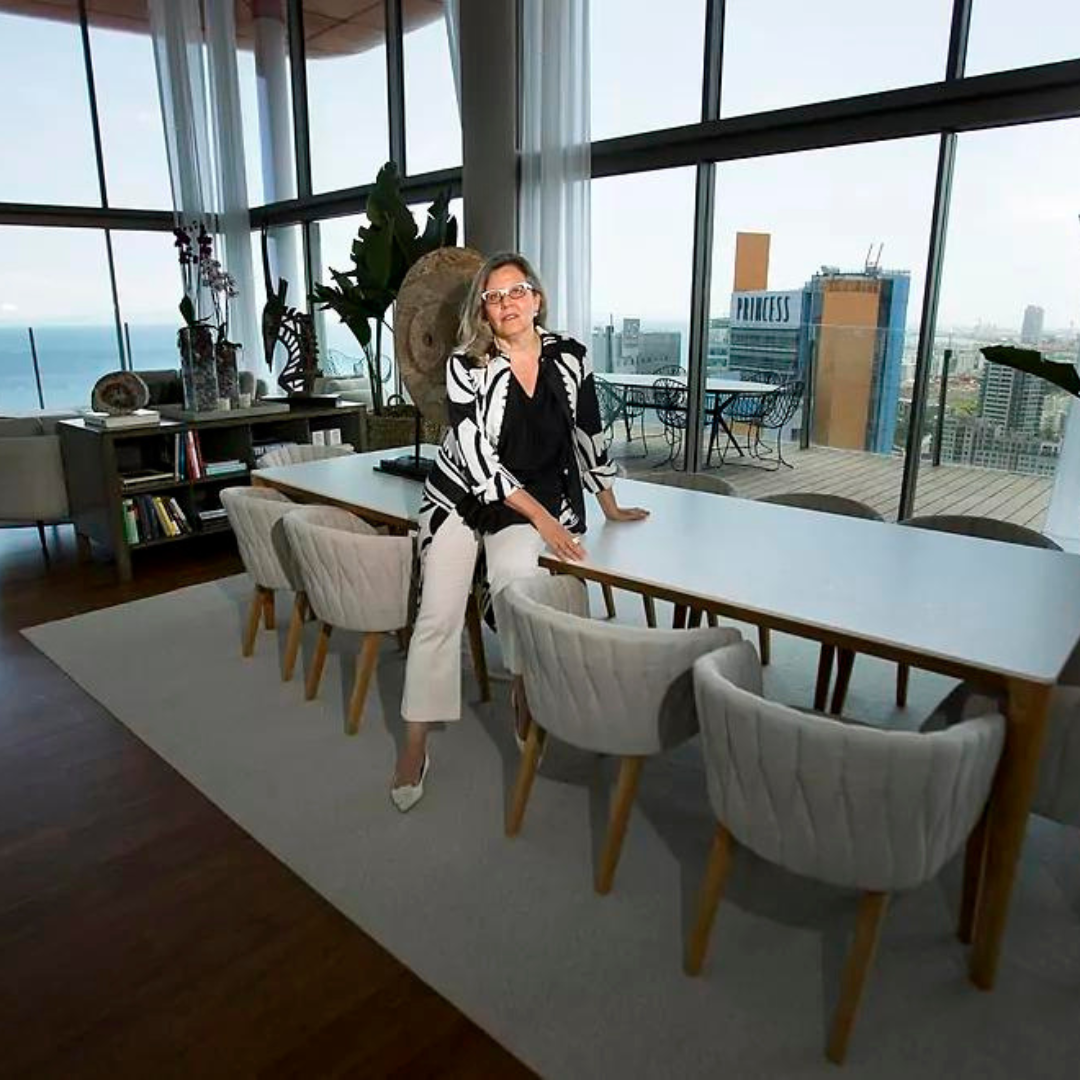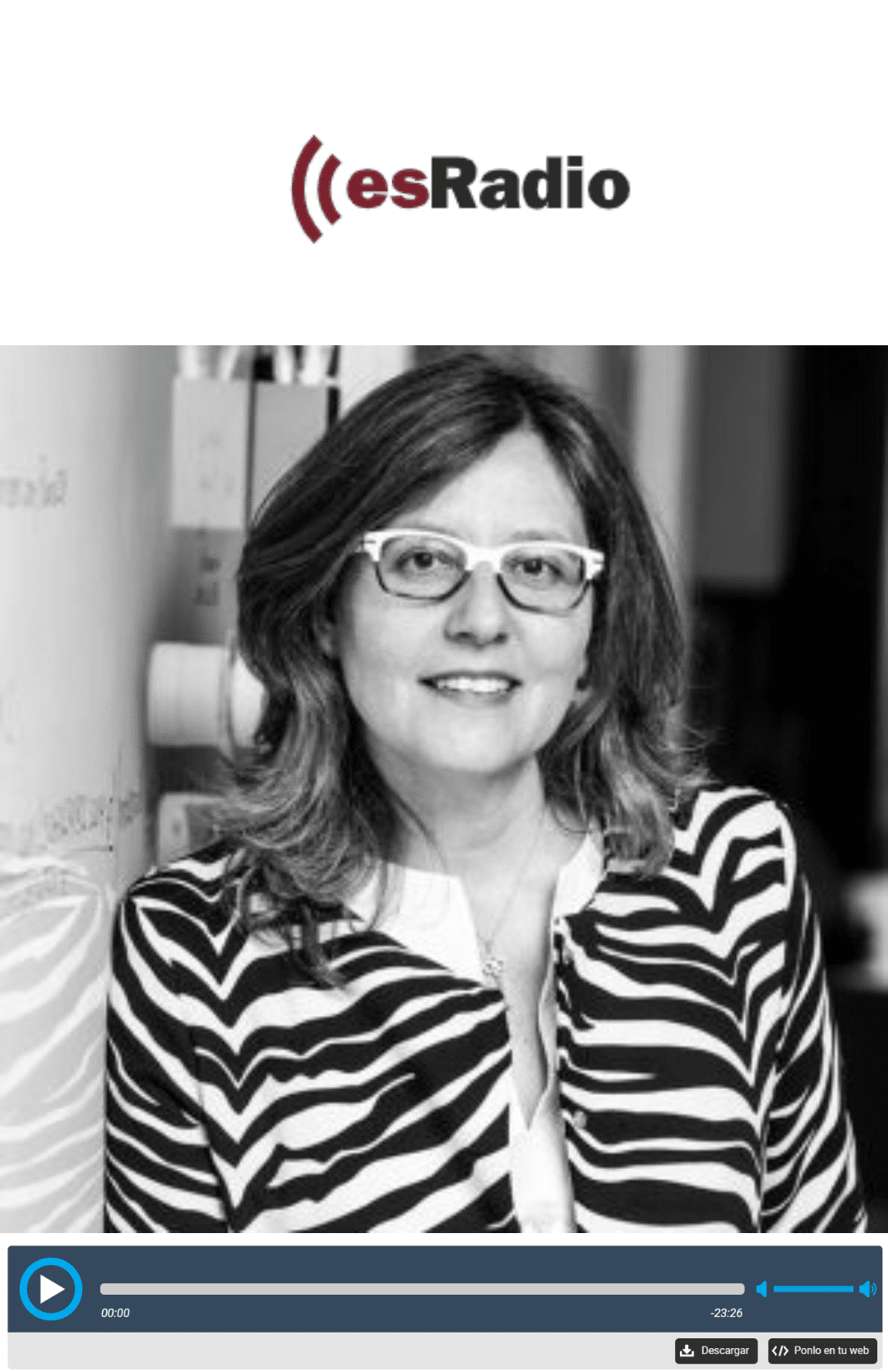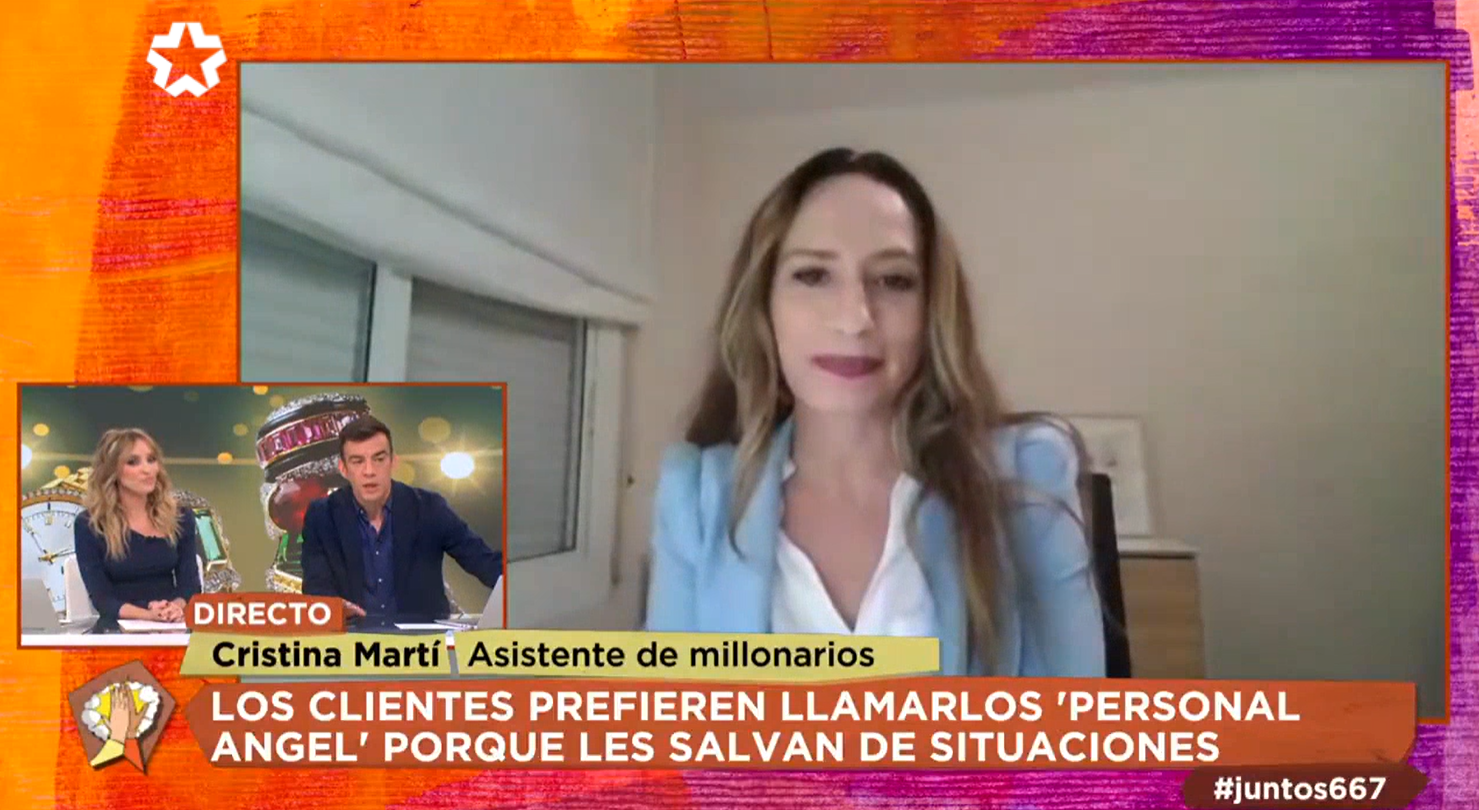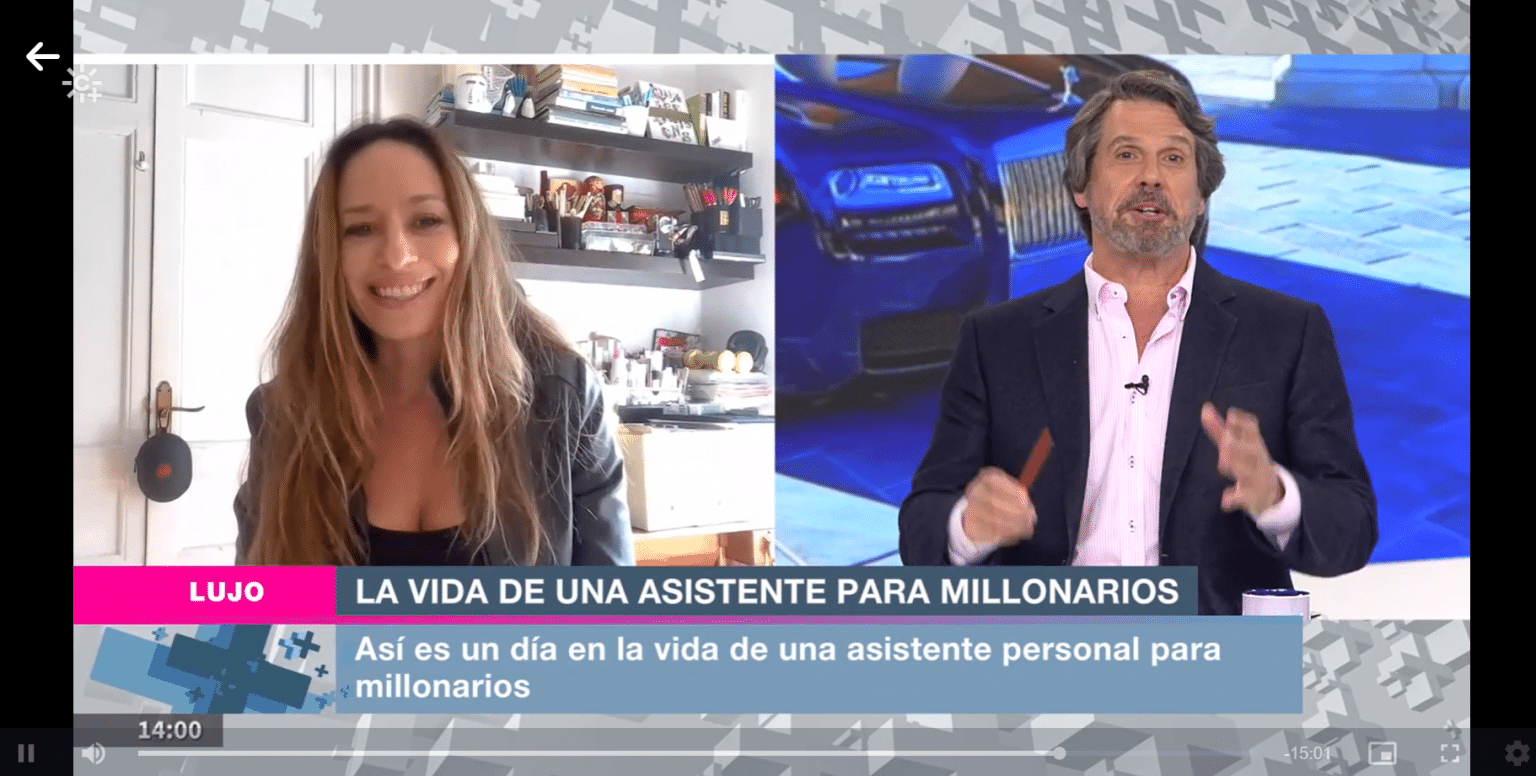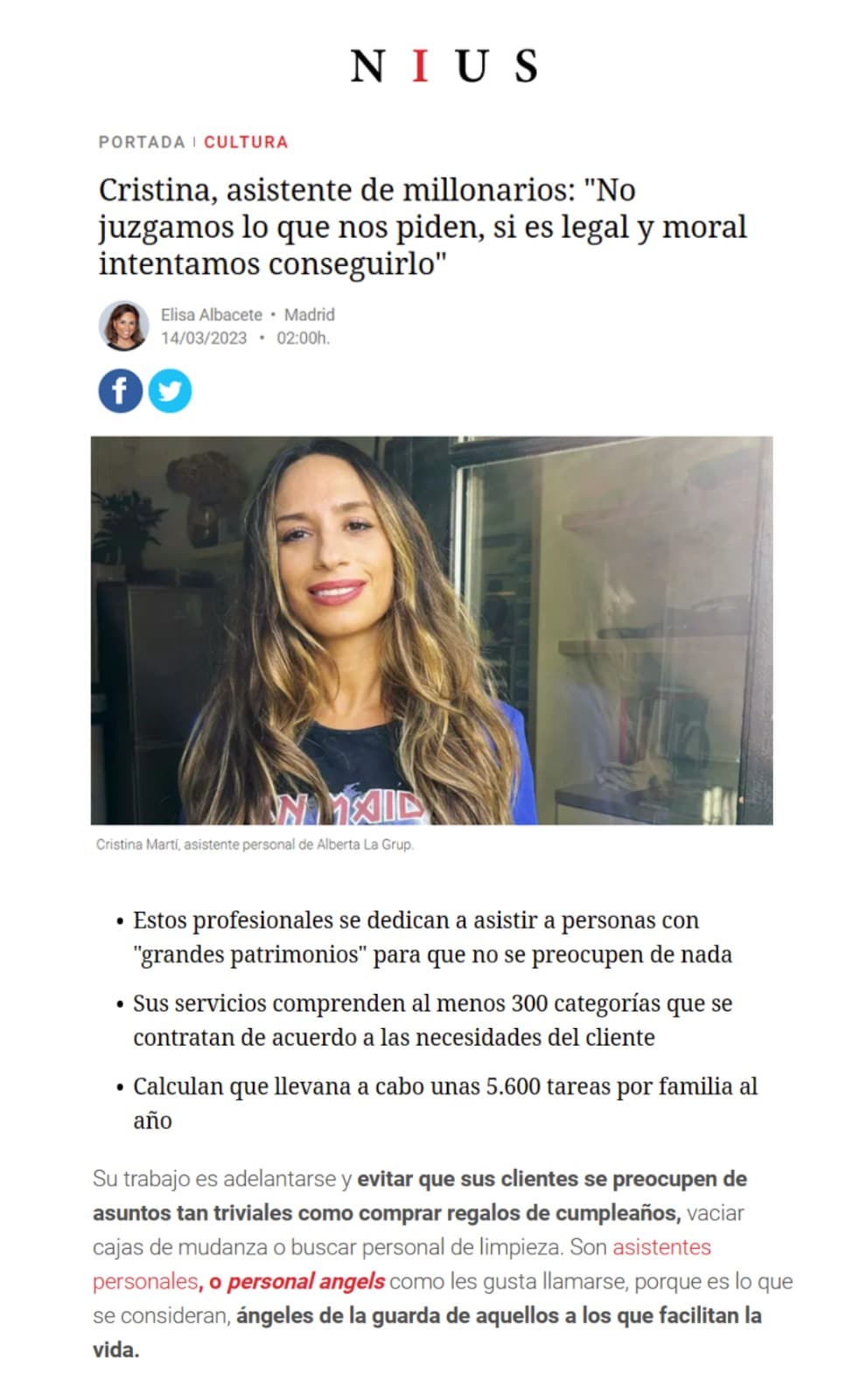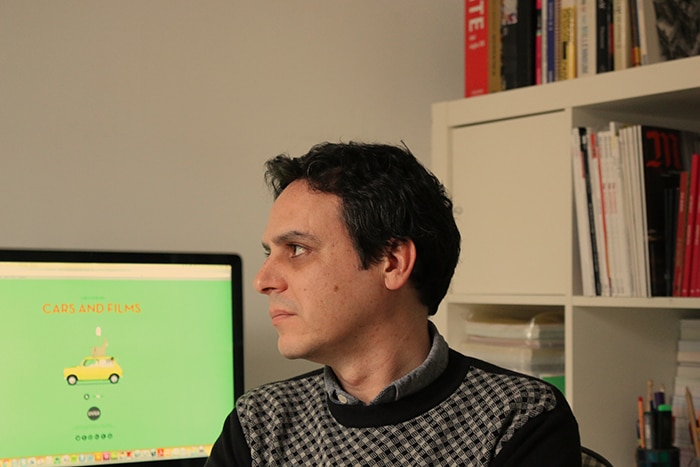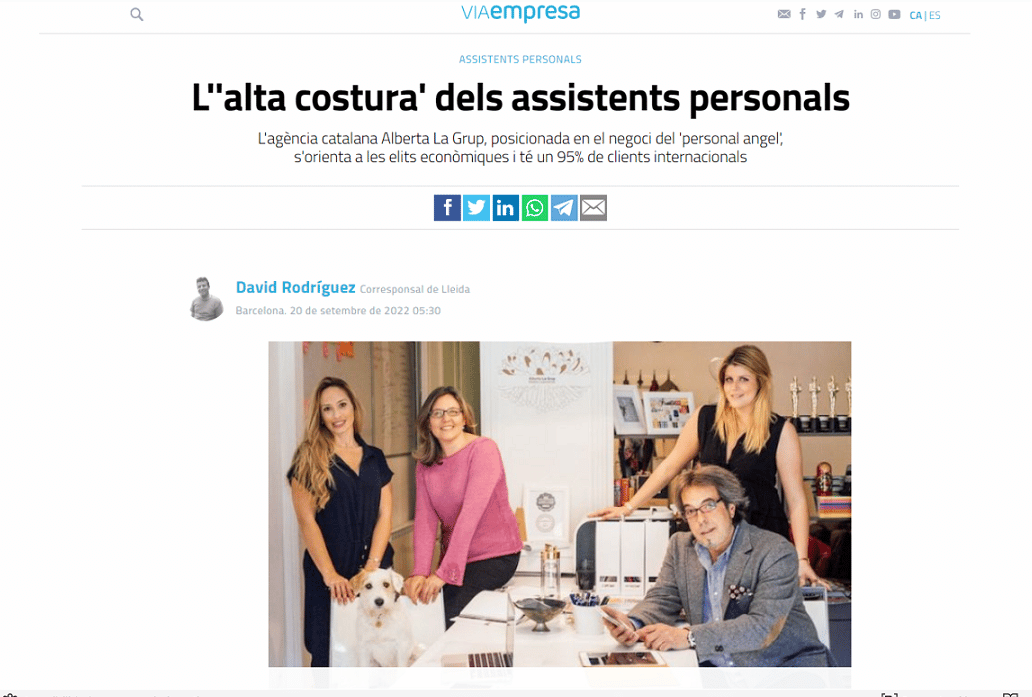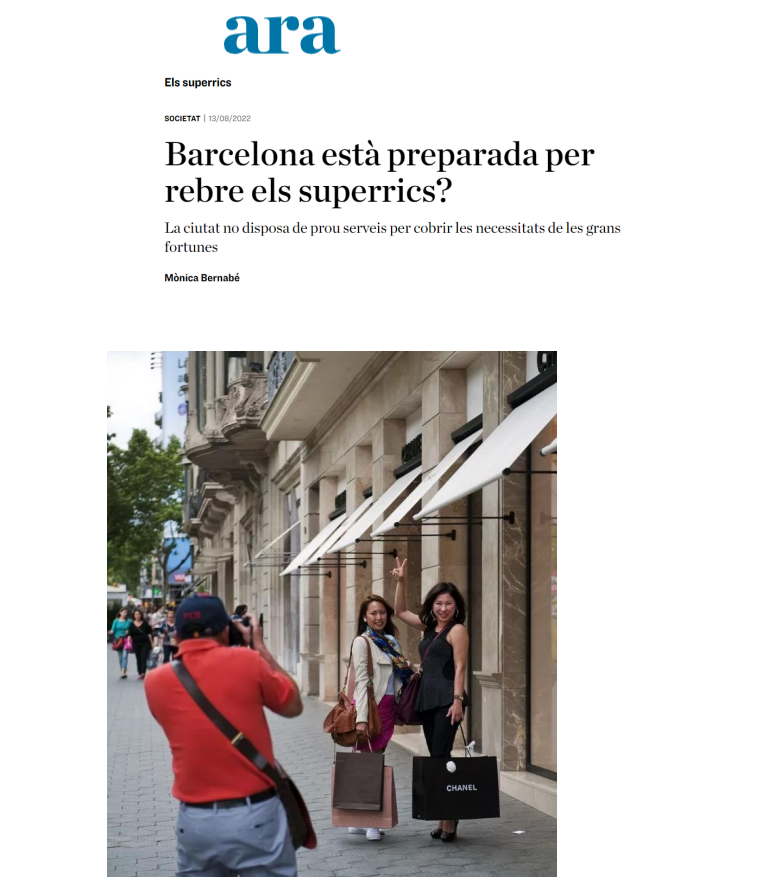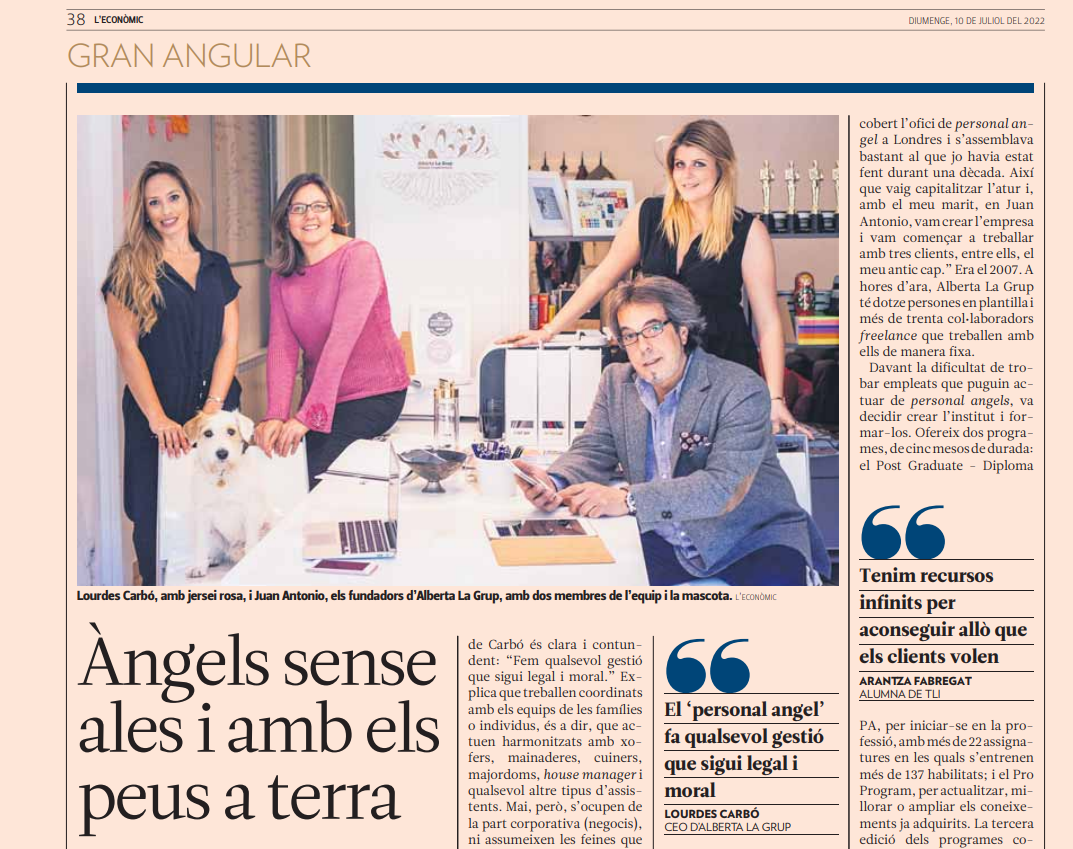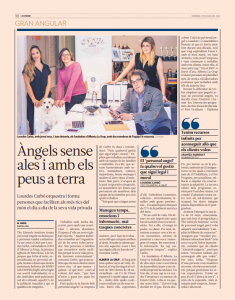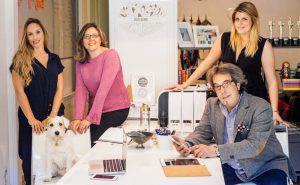We are the news in the newspaper EL MUNDO
📰 Did you read the newspaper the day after the elections in Spain?
You probably found this…
https://www.elmundo.es/papel/historias/2023/07/23/64bc219de4d4d865108b45b0.html
Yes, we are news too!
💥 Although we live immersed in the world of silent luxury, sometimes we know how to generate buzz.
Editor: Marisa del Bosque
Photo: GORKA LOINAZ ARABA PRESS
Here is the interview translated into English ↘
SUMMER
The manager who pulls the strings of Spain’s super millionaires: “Sometimes you have to stop and put your feet on the ground”
Behind the main fortunes of our country is Lourdes Carbó, a ‘personal angel’ who attends their needs and whims at all costs. In one week they can spend up to two million euros. This is the regular basis of her profession at the highest demand.
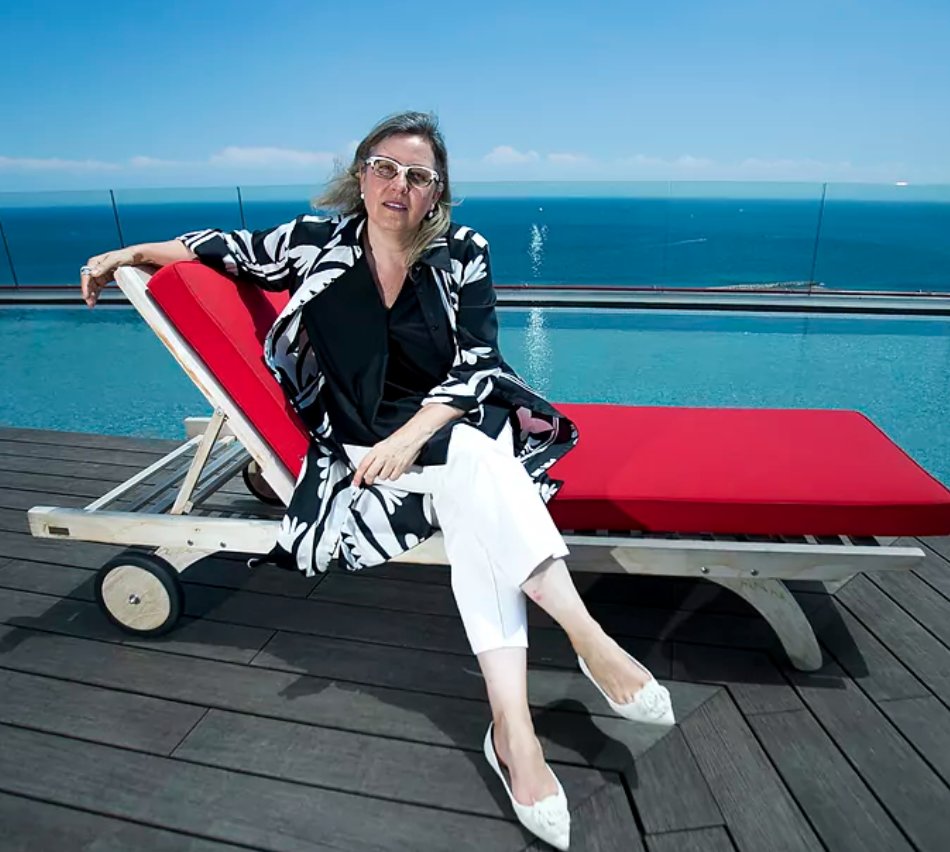
Carbó at the terrace of the Antares Tower, one of the most luxurious skyscrapers in Barcelona
GORKA LOINAZARABA PRESS
From arranging a private plane to getting an invitation to the exclusive Monaco Rose Ball, where Lana del Rey was giving her only concert of the season, specifically the one a teenager wanted to see to celebrate a special date. Lourdes Carbó is capable of achieving that and almost everything, from the simplest to the most complicated requests. “Sometimes so much that you don’t even know where to begin,” she assures.
Carbó works as a personal angel, the unknown figure in the shadows who makes life easier for that tiny percentage of millionaires who make their fortunes in our country. A small club that, on the same day, can afford breakfast on deck with French champagne at Miami’s coastline along with oysters for dinner, while watching the sunset in a mansion in Tuscany, without, of course, worrying about moving or packing a suitcase, booking a hotel, buying a ticket or any of the other mundane tasks faced by those who already consider it a luxury to take a few days off the calendar to spread out their towel on a beach.
Far from that condition, for the tiny segment of the population with six zeros in their current account – almost 3% of Spaniards, according to Credit Suisse’s Global Wealth Report – ,enjoying a well-deserved holiday is stress-free since there is nothing to think about: their favourite flowers will be in the vase, cut to the right size and placed in the right position, the caviar will be cooling in the fridge and the yacht will be ready to set sail.
We are talking about rich, very rich. “They are families exceptionally distinct with the rest of society, with very complicated and extraordinary lives, who take 22 people to the other side of the world, to the Hamptons, to celebrate their grandmother’s birthday. As expected, none of the invited pack a suitcase and when they get there they have nothing to do, since everything is already done. That’s part of their tranquility and our duty to fulfill,” remarks Lourdes Carbó, founder of Alberta La Grup, a Spanish company that has become the world’s third largest personal assistant agency for high net worth individuals, social elites and the very successful.
How big? Huge. Last year, Forbes magazine counted 28 multimillionaires in Spain, considering only those with assets worth more than one billion dollars. Far behind them, but also in the economic stratosphere, another 246,500 people exceed one million, according to the consultancy Cap Gemini, with figures from 2021. “These are families who may have 400 domestic servants on their payroll and own an average of five residences – some as many as 12 – around the world, people who don’t hesistate to spend 6,000 euros for a night in a hotel or a bottle of wine”.
Carbó’s clients, eight at the moment, have a “brutal” economic level. “We don’t wonder what they want, we just make it happen,” she claims. “We are the CEO of their private lives, because we don’t deal with any corporate issues, we are there to make the company, the family, work”.
Furthermore, Carbó’s clients have all sorts of requests, specially in summer, when these angels hit the working peak. “The turnover is huge, we operate with a lot of money: a family can spend two million euros in a week,” she states. “So, although we have our own holidays and private lives, like everyone else, we never rest, because things are always happening and you are there to sort them out, whatever it takes; it’s very difficult to separate private life from work.
“We are like the validos of the 21st century, the right hand of the powerful”
As an anecdote, she recalls interrupting her days off to drive a luxury car to a villa where a family was demanding it. “It’s not that much of a sacrifice to drive that kind of car, is it? Specially with the gas is paid for. You don’t get that opportunity every day,” she says. “This profession allows you to travel in a different way and to live experiences that would otherwise be unattainable”.
Her company, which she set up as a limited company in 2011 after capitalising the Spanish unemployement, began by providing services to three families. Now 18 multilingual people work for her – some speak up to seven languages, including Arabic, and Lourdes, five – and they are mainly operate in Switzerland, Dubai, Paris, Monaco, New York and Miami. They manage a network capable of handling anything and anywhere in the world: “The important thing is to know how to move around and contact the expert who can help you; the key is your agenda, if you have contacts, everything is easier,” she says.
These types of companies follow a pyramid scheme: only the angel staff deal with the family, while behind them a whole network of professionals manage any need. For example: solving the theft of the yacht’s dinghy, organising an extra weekend on a Greek island for a teenage girl with her friends or organising 12 dinners with as many different chefs. “But under one condition: that they have to be the best in the world, all with Michelin stars. Families know very well what they want and will pay whatever it takes. And we don’t question it, we manage it. I like to say that we are like the validos of the 21st century, the right hand of the powerful”.
And doesn’t that go to one’s head? “We know what’s in that world, but we are not part of it, it’s not ours. The families we serve make decisions without accounting money, they are looking for experiences. But we also get them discounts, and they like it. Sometimes when we say: ‘It’s a great price’, we stop to weigh and…. Sheesh, you have to stop and put your feet on the ground,” Carbó replies confidently.
She is the best definition of silent luxury, stealth wealth disguised as simplicity. “In this social stratum there are many symbols that make it clear what category you belong to, whether you are nouveau riche, rich de pedigree or just plain rich. And, yes, you can learn them. In fact, you should learn them, because they are decisive, for example, when it comes to hiring a yacht: “You have to know which one to look for; there are some basic minimums that you need to acknowledge”.
It is something so simple yet so complicated for those who do not move in these circles, like checking that the measurements of a private plane are sufficient to allow you to enter it standing upright. “Imagine the situation if the family has to bend down when the day comes,” she remarks.
At what point does someone consider being an achiever? Carbó worked at the corporate level, as as Presidence secretary, and was often asked to help with private matters. “I had colleagues who hated it, but I enjoyed doing it, I found it a challenge. Later, when the family left for North America, I decided to stay and work for them from here, on a personal level. I had discovered this type of business: Concierge companies, in London, and I already had the idea in my mind, I wasn’t discovering fire.
After that, word of mouth did the job, because in this kind of business nothing is advertised. “Our clients only know what’s going on at home, nothing else; we even work for the families of two brothers who don’t know about it.
Anyone who wants to start a service like this can do so without a problem, Carbó insists. “You don’t need much: a computer, a mobile phone and contacts. And work long hours. Has it been easy? No. Can anyone do it? Yes. We work 24/7, but it’s well paid. I’m very ant-like and cautious,” she argues, playing it down.
But the reality is that their work is very well paid: again, another six figure payroll. These are the ones that reward responsibility; the angel staff know the family’s sensitive information, they know what side of the bed everyone sleeps on, whether they will want the yellow or green dishes, how they like to organise their clothes in the drawers, they have the house keys and passwords…. And, above all, they pay for “absolute discretion”, the key to the success of their work.
“Without it, you have little future,” she says. “It’s about achieving the objective (whatever the request) without collateral damage. We are not experts in anything, but we know where to find them. Our job is similar to that of a journalist: we know where to look. There is money to be made, but there is also a lot of stress, you never finish.
Part of the merit lies, also, in moving on two sides. “You have to know perfectly what the family is like, their tastes, but you also need to persuade those on the other side. For example, the person who has to go down to the beach to check whether the sand is white or black. And you also need to get them to come down to check it happily and to want to collaborate with you, so that you don’t get an unpleasant surprise afterwards. You depend on them and you have to use their language.
Carbó describes it in a way that seems simple, but it may not be so simple when it is a profession within the reach of few. What do you have to have to be able to do this? I insist. “We have made a list that includes 137 skills. We could think of more, but never less. And it doesn’t mean you have to have all of them, although there are some that are fundamental, in addition to discretion, languages and empathy”.
That is why they set up The Lifestyle Institute, a unique school in the world directed by her which is the first in Europe to train these discreet and efficient professionals who manage the private lives of the elite. “It came about out of necessity, we couldn’t find qualified people to do the job. I have been self-taught, anyone can, but it takes longer and you’d suffer, hence our course,” she says.
“If you once jump through the hoop of something you don’t like, you’ll have to do it every time”
No matter how talented they were, it took an average of four to six months for those aspiring to find a job with Lourdes Carbó to become somewhat comofortable, a time she did not have. “That’s why the postgraduate thing started. I started with the intention of outlining what is needed to enhance the skills of those who are interested in becoming angels so that they would be up to the task. This profession is exciting, but only for a minority, even though there are a few thousand millionaires. It must be preserved”. So far, there have already been two official calls for applications for her master’s degree, last one being this past June.
In all this time, hasn’t there been anything that has made you think that it has got out of hand? I ask her. “Yes, of course. For example, the day I had to ship bottles of water of a certain brand to the other side of the world, to a Eurasian country. They needed it to wash their hair, because it had the right mineral composition to give them the texture they wanted”.
Along with this frivolity, there are other extravagances that don’t work out, such as when she had to fill a house with 6,000 little glasses each containing a rosebud. “He wanted to surprise his partner, a much younger woman, but he didn’t get the effect he was looking for and she didn’t like to come in and see all that. We had to make them disappear almost immediately, we had to destroy something that had cost us millions in seconds”.
There are many other moments that fill her with pride. For example, when she managed, in extremis, to find lost medical tests at MD Anderson Cancer Center: “We felt it was crucial to find them and we did it thanks to the help of a nurse who went around the building opening drawers left and right. We are there on a day-to-day basis, both during festive events and in delicate situations.
Have you ever had to stop your client and say ‘this is it’? “Of course, if you once jump through the hoop of something you don’t like, you will have to do it every time. I have had to stop working with three families, because there are also some families that you don’t like. And the way you leave also has to be precise; it’s not as simple as saying goodbye”.
-Are we talking about a request that borders on the law?
-No, I simply understood that it was not the way of doing things. And I didn’t do it,” she concludes.
Translation: Mario Ruiz Blanco

